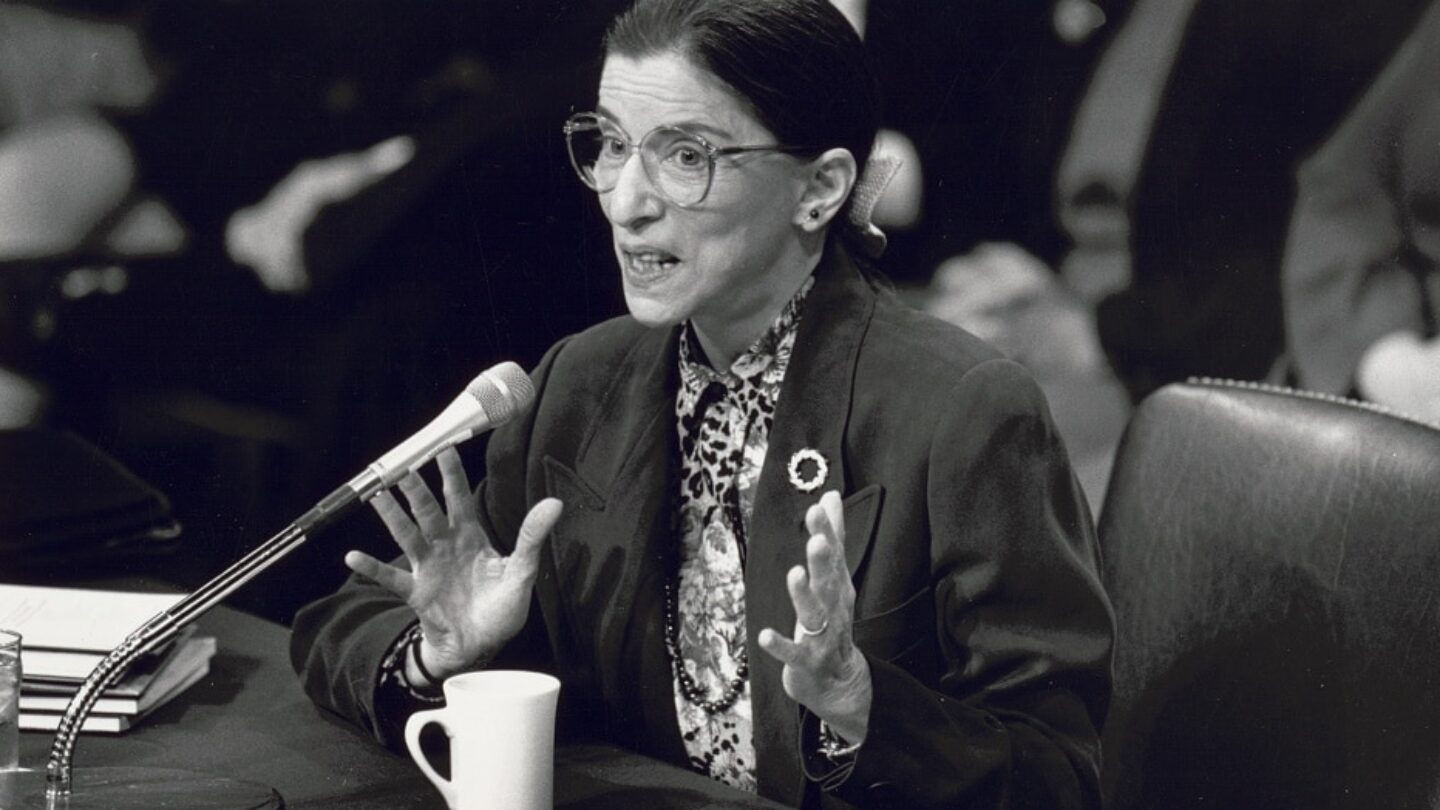
Ruth Bader Ginsburg at the Senate confirmation hearing for her appointment to the Supreme Court on July 21, 1993. | Wikimedia Commons
To mark the death of Justice Ruth Bader Ginsburg, a trailblazing woman who carved out her place in history, we’re sharing this op-ed created as part of the My Wish For US initiative facilitated by Made By Us. It was written by one of our stellar Junior Interpreters who, like Ginsburg, recognizes herself as an agent of change.
Growing up during a time of protests in the streets and calls for structural change has made me realize that I want to be a part of an America that responds to youth activism and learns from an unbiased telling of the past.
My wish is that my generation carries the current political momentum into the future in actionable ways. We need to pass common sense gun reform laws. We need to shift our reliance on nonrenewable energy to renewable energy. We need to continue legally validating the LGBTQ+ community. We need to demilitarize the police. We need to dismantle systems of oppression. We need to encourage more women and people of color to run for political offices.
My generation needs to continue to show up to protest, vote, seek office and hold those who do accountable.
Whenever I find myself losing hope in America’s future, I watch “On the Basis of Sex,” a movie that details the life and legal battles of Justice Ruth Bader Ginsburg, a personal hero of mine. A line from that movie that particularly stuck with me was “Courts ought not be affected by the weather of the day but will be by the climate of the era.” Its sentiment is applicable to national politics.
My hope is that youth mobilization and large-scale movements for change and justice will shift the climate of the era. In 2018, I participated in the March for Our Lives in Washington D.C. It was so inspiring to see so many teenagers show up to call for gun reform after too many school shootings to count. It was even more moving to hear youth who had experienced trauma speak in front of a crowd thousands strong. More recently, there have been youth-led movements to address climate change that I’ve also been drawn to. Even this month, my peers have once again organized and shown up, this time in response to police brutality and racial injustice. My generation’s passion and commitment to fight for lasting change gives me hope that we are the true stewards of the climate of the era and the direction of our future.
But we must also be honest about our past to improve our future. I’ve volunteered at Atlanta History Center as a Junior Interpreter since I was in the 8th grade (I’m currently a rising senior in high school), so I’ve had the amazing opportunity to explore history up close and from various perspectives. I’ve utilized the many resources Atlanta History Center has to offer, like the Kenan Research Center, to delve into topics I’m passionate about. Two years ago, for my History Talks research project, I researched the Women’s Suffrage Movement in the South. I was appalled but unfortunately not surprised to learn that many of the suffragists I had admired since I first learned about them in elementary school didn’t hesitate to exclude Black women from the movement. This shifted the focus of my research and the lens through which I view current issues; I couldn’t ignore the historical underpinnings within the current state of the feminist movement. As I continued reading, I was angered by white women who refused to acknowledge that women of color face other obstacles in addition to gender discrimination. I want to be part of an inclusive feminist movement that elevates the voices of women of color.
Simply by educating myself from the full, uncut version of history, I was able to adapt my worldview. Until schools appropriately address the current educational bias, students will develop a very limited scope of understanding when it comes to the foundations of America. Schools need to make an effort to include more cultural diversity into the history curriculum so that students are presented with the same opportunity I had to learn about history from various perspectives.
Honest history plus activism can lead to systemic change. That’s my hope for America.
Dana Richie is a senior at Grady High School in Atlanta, Georgia who loves using her voice to tell other people’s stories as well as share her own views. Ever since the 8th grade, she has pursued her love of historic storytelling by volunteering at Atlanta History Center. She really enjoys writing and editing for her school newspaper, The Southerner. In her free time, she can be found playing ultimate frisbee, competing in debate tournaments and painting on repurposed objects.